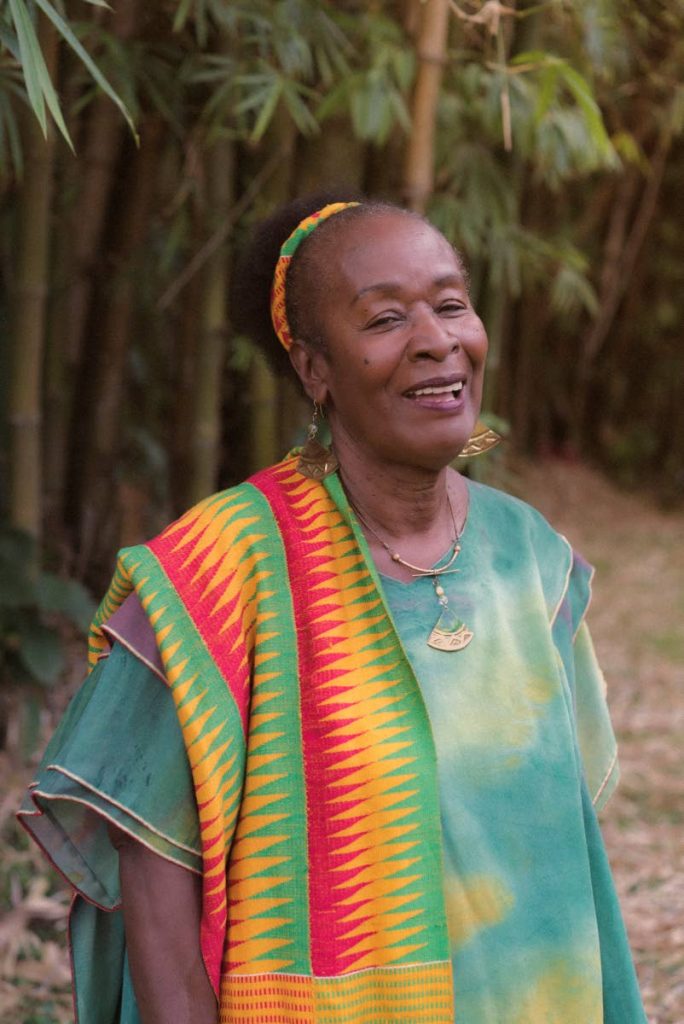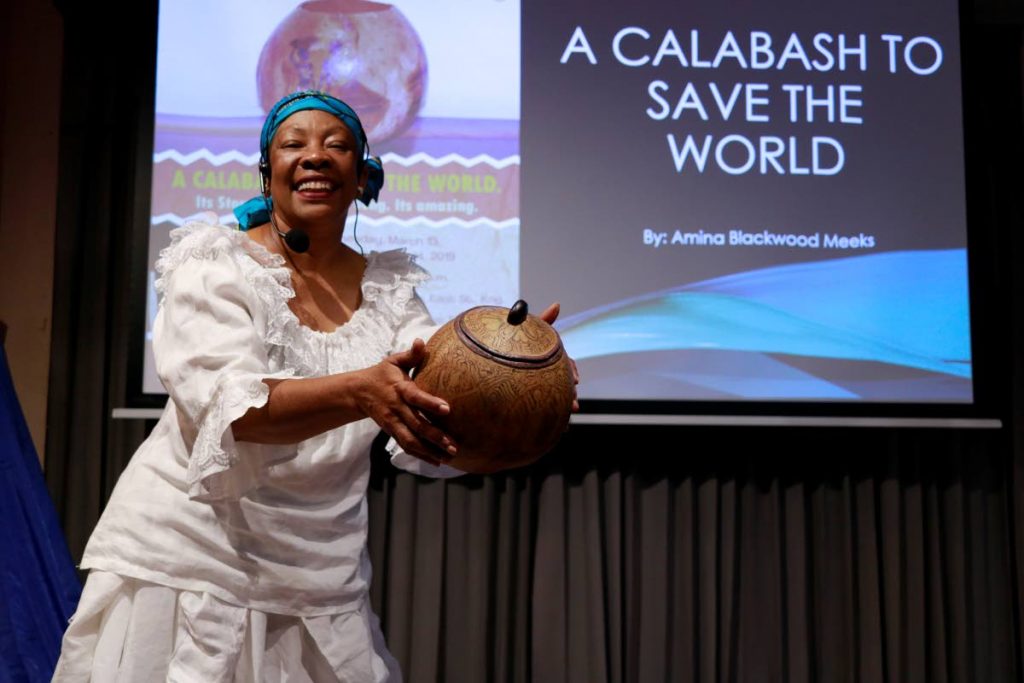Storytellers embrace online medium

Stories heal and unify in times of trouble. A new online series featuring TT poet and storyteller Eintou Springer along with other storytellers celebrates this truth during April. The first instalment, How Handwashing Came into the World, aired on Sunday on the poet’s Facebook page and can be found there.
The initiative is being carried out worldwide by members of an international organisation of traditional storytellers called the International Ananse Movement (IAM) convened by Dr Amina Blackwood Meeks of Ntukuma Jamaica, hosts of the Ananse Sound Splash, an international storytelling festival and conference. Ambassadors include Springer, Jan Blake and Michael Kerins from Europe, Jeeva Raghunath from India and Nomsa Adlalose from South Africa.
Blackwood Meeks said IAM is motivated by a desire to give recognition and visibility to indigenous and original cultural forms.
“It takes its name from the Spider God of Wisdom of the Akan people of Ghana, who has survived in stories across many areas of the African diaspora. With Ananse as the symbol of resistance and retention, IAM is inclusive of all cultural forms that have survived in stories, songs, chants and in our unique drum rhythms on the fringes of mainstream consciousness.
"The Stories that Heal and Unify project represents the commitment of storytellers to assist people to understand and cope with the current crisis brought on by covid19 by sharing stories that highlight the values by which we have lived in the past as well as stories that demonstrate our capacity to survive. Our spelling of Ananse is in keeping with the spelling used among the Akan people who gave us Ananse and this reclamation of the name is important to reparation.”
Springer said following a conversation with her daughter Atillah Springer about how to use storytelling to help people during this time, Atillah suggested they reach out to Blackwood Meeks, who was the convener of the IAM.
Springer said the storytellers will tell the same stories at the same time each Sunday in April, in their native language and storytelling traditions. In the story, Ananse, the Spider God of Wisdom of the Akan people of Ghana, decides to cook himself a meal. One of the animals often found in the Ananse stories, Turtle, decides he wants some food, but Ananse says he can only have some if his hands are washed. The ending would come as no surprise to those familiar to Ananse stories.

-
“Everyone would have told the same story around the world, but everyone would have used their own food. In Jamaica Amina would tell it with ackee and saltfish, and whatever they eat in Europe, but of course I will have my own local flavour with the plantain, the things that are important to me. I take the basic idea of Ananse and the handwashing and Turtle and so on, and give it my own local TT flavour, and my own, because I am a storyteller in my own right, with the Crick Crack, etc.”
Springer said the story has been well received online, with people e-mailing and sending WhatsApp messages to congratulate her. She said it has particularly well received by people in the diaspora. She said the story fulfils many purposes which are relevant to the current atmosphere.
“It says to you that you don’t have to be afraid to be alone, you could find things to do and enjoy your own company. It reminds you of the beauty of our food, and the important thing of everybody planting, Ananse could have gone in the yard and picked his dasheen bush and ochro and seasoning and ting. It also reminds you of what the message is now of the need for cleanliness, and lastly the whole ritual of storytelling.”
She said she was new to technology, but with urging from her daughters she is posting about some of her experiences, including living through the polio outbreak in the 1950s where her mother made her and her siblings stay home, similar to what is happening now. Her page, which was created on April 2, already boasts over 500 likes and almost 600 follows.
Springer said she is glad to have the opportunity to be able to tell her stories to a wider audience, as for many years she has been lobbying TTT and the Education Ministry to be able to do storytelling on TV.
“If this were a different country, we would be able to get some sponsorship for this or TTT would put it on because there’s nothing local on the TV for children. I believe in storytelling as a means of reaching people in a non-didactic and entertaining way, and stories are part of the consciousness of both African and Indian peoples in this society, and I regret that it is not being used. I mean can you imagine if we had a storytelling series while the children are home on TTT?”

Comments
"Storytellers embrace online medium"